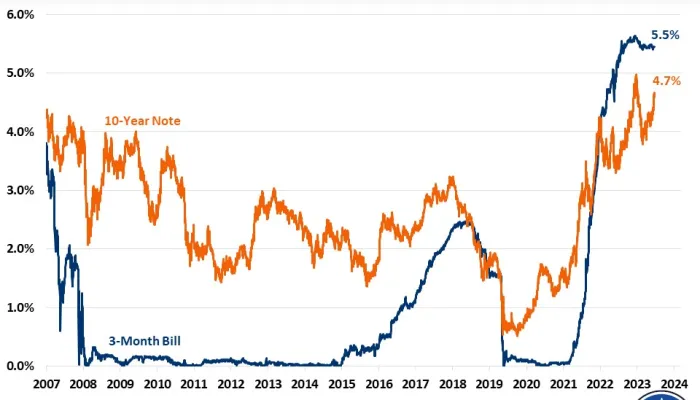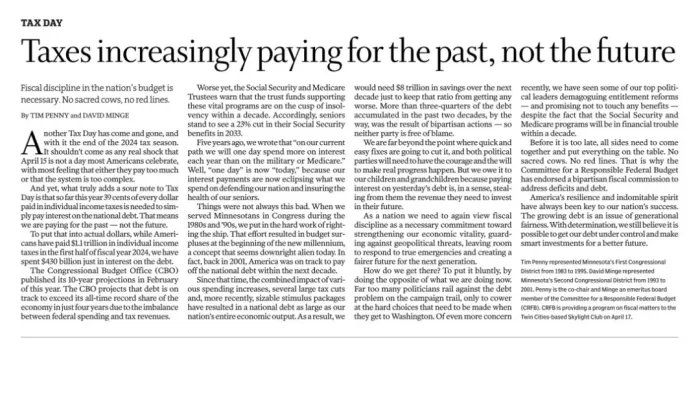Did the Trade Deficit Cause $20 Trillion in Debt?
In a meeting with South Korean President Moon Jae-in, President Trump suggested that the national debt is caused by years of trade deficits. However, the national debt has been caused by years of budget deficits, not trade deficits. We rate this statement False.
The President said (video here):
The United States has trade deficits with many, many countries, and we cannot allow that to continue ... For many, many years the United States has suffered through massive trade deficits; that’s why we have $20 trillion in debt.
President Trump appears to be mixing up trade deficits, or the amount that the U.S. imports more than it exports, with budget deficits, the amount that the federal government spends more than it raises in tax revenue.
Years of budget deficits have accumulated into the national debt, currently $19.8 trillion. Yet the budget deficit is determined by the tax and spending decisions made by Congress and signed into law by the President, regardless of how much American consumers and businesses buy from other countries.
In a thought experiment, let's pretend that every good and service purchased in the United States this year was produced here. There would be no trade deficit. But most federal spending would be unchanged—the size of government agencies and the military, the amount of Social Security and Medicare benefits, the amount of veterans' and retirement benefits, etc. Federal revenues, which are driven mainly by the structure of income and payroll taxes and the total amount of income in the economy, would also be similar. If spending and revenue don’t significantly change, neither will budget deficits.
To be sure, the trade and budget deficits are somewhat related to each other. But the cause-and-effect is largely the opposite of what President Trump suggests. It isn’t that higher trade deficits lead to higher budget deficits, but rather than higher budget deficits tend to indirectly lead to higher trade deficits. Currently, about $6 trillion, or a little less than one-third of the gross debt, is currently held by foreign countries and investors. Higher budget deficits can result in more foreign-held debt which in turn can impact the trade deficit (another one-quarter of the gross debt is money the government owes itself and does not have even an indirect relationship with trade deficits.)
Even this relationship is somewhat weak and certainly not ironclad. Historical and comparative experiences offer many examples of budget and trade deficits moving in opposite directions. For instance, in the late 1990s the U.S. had budget surpluses, but still ran a trade deficit. Of the 35 OECD countries, only 8 have both types of deficit. About half have a surplus in one and a deficit in the other. Japan, Canada, and Australia, for instance, have trade surpluses but budget deficits.
The United States national debt is near $20 trillion, caused by continued budget deficits. The country also has large trade deficits, but those trade deficits are not the cause of our budget deficits or our large national debt. Reducing the trade deficit, therefore, will have little impact on the national debt – fixing the debt will require tough tax and spending changes.


